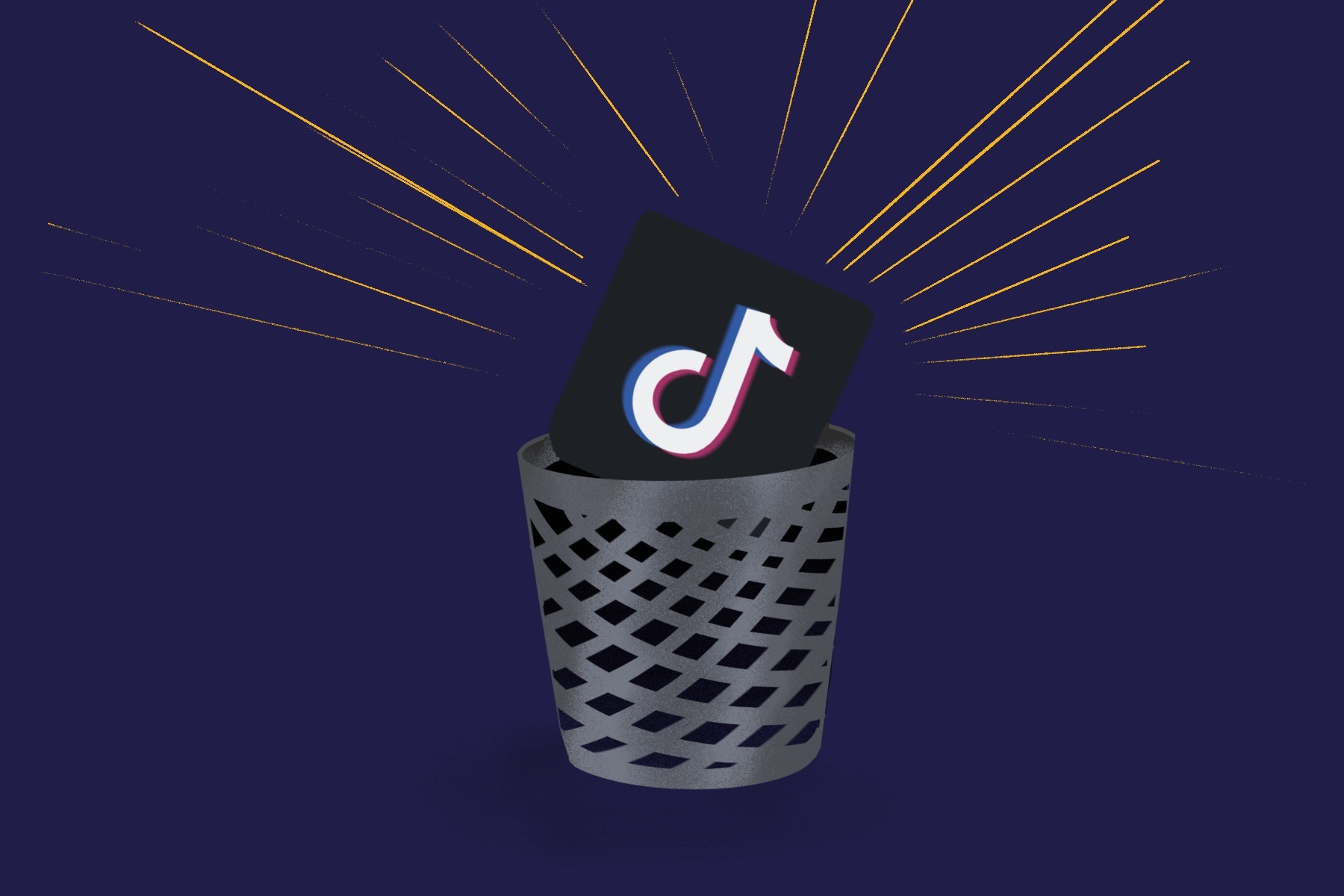Two short months ago at the start of Lent, I made a pretty big sacrifice. I gave up TikTok, pledging not to go back on it until after Easter Sunday.
TikTok, for those who are fortunate enough not to know, is a social media platform where content creators create short videos on anything they want. There are even TikTok trends where audio is used and manipulated in various ways and dances that have gone viral. One of the scary things about TikTok is how addictive it is; there’s something for everyone, and TikTok’s algorithm purposefully modifies what you see based on your interaction with certain content.
If someone’s a gym rat, they can find content ranging from relatable gym jokes to suggested workout routines. CookTok features recipes that can be curated for a cheap college budget, a diet to lose or gain weight, vegan and vegetarian cuisines, fun festive recipes and more. BookTok gives book reviews and recommendations, and I have to admit I’ve bought and enjoyed books that were recommended to me on TikTok, such as Emily Henry’s “Beach Read” and “People You Meet on Vacation.” There are even advice pages aimed at college students; one that’s particularly useful is directed toward students who are either already in college or heading for college, and some of their tips would’ve been nice to know — maybe then I’d finally have enough hangers for all my clothes at one time.
In spite of that, I decided to give up TikTok because I knew I was spending too much time on it, enamored with the lives of people I’ve never met and — in all likelihood — never will. I parted with some of my favorite content creators, Anna Sitar and Avery Cyrus, as well some of my favorite TikTok genres. And here we are, well past Easter, and I have officially deleted TikTok.
Surprisingly, I found giving up TikTok to be easier than I initially thought. While some obstacles presented themselves — feeling tempted to click on TikToks sent in group chats, hearing people quote an audio I knew nothing about, or listening in as people in the same room played TikTok audios on their phones — I remained strong and can proudly say I haven’t been on the app since February. I filled the void by adopting new hobbies; I began going to the gym a few times a week, started writing for fun in my free time and felt a little more productive and relaxed overall.
In the months before I gave up TikTok and ultimately deleted it, I would spend hours on the app. Hours that could’ve been dedicated to literally anything else, like reading a book, talking to a friend on the phone, writing, drawing, studying, watching a new movie, etc. While my guilty pleasure was probably the recipe videos, I never made a single recipe I saw; I only liked or saved them to my camera roll, where — legend has it — they still sit, waiting for me to try them. Since deleting TikTok, I have found the website of my favorite creator, @thepalatablelife, and am opting to try recipes from there.
Before giving up TikTok entirely, when I would scroll through my For You page for hours on end, I felt my memory failing slightly, and my attention span shortening drastically. I was swiping through videos if they didn’t capture my attention in the first 15 seconds, sometimes swiping in less time. In fact, the article “7 Reasons TikTok Is Bad for Everyone” mentions that TikTok’s short-form videos actively decrease attention spans if users are on for more than 90 minutes a day. Imagine what that would do if someone uses the app three hours or more each day. That’s also especially alarming news for college students — our age demographic is the most susceptible as our brains are still in development, meaning this damage can last a while.
Outside of the time concerns, there are other dangers associated with TikTok. Similar to other social media, it’s easy to compare your life to the fake perfection captured in these little videos. By using filters and trendy audio, an enviable life can be curated that can induce insecurity and depression in users.
One such trend is the productivity-based “Day in the Life.” These videos can make viewers feel poorly about their own daily routines while withholding how unrealistic they are. One tip is to get up as early as 5 or 6 a.m., which not everyone can or should do. In an article by Rachel Patel, she discusses why this is an issue, especially when considering the body’s natural clock, or one’s circadian rhythm. Circadian rhythms are something that differ from person to person: “If these girls are waking up at 5 or 6 a.m. and that’s their natural circadian rhythm, then I would say it’s OK. But if that’s not, and they are disrespecting that, then that can be quite detrimental to their health.”
This fact is something that isn’t recognizable to viewers; they may call themselves lazy if they’re unable to get up that early when really, it’s part of their body’s physical makeup. It’s also crucial to remember that these videos don’t capture a person’s day in its entirety; there is a lot left uncaptured.
Another trend that populated my feed was “What I Eat in a Day.” These videos were either done for fun or were filmed as recovery from eating disorders, and they blew up my timeline. No matter what the creator’s purpose was, I still found the videos unsettling as someone who struggles with body image. Seeing tons of these videos was exhausting; it constantly made me question the portions that I was eating and whether they were “healthy” or “ideal.” Some of these videos and diet suggestions bordered on the dangerously unhealthy. While I am fortunate enough to not have an eating disorder, I was still negatively impacted and cannot fathom how it would feel to view these videos as someone who is either in recovery or struggling with an eating disorder.
For me, TikTok was not only a time sucker; it delayed my memory and stymied my mental productivity, and also helped breed a lack of self-esteem. Taking a break from the app made me contemplate and realize how dangerous it was, even if I was in love with the content it shared. Since then, I’ve reconnected with some of my previous hobbies that were abandoned when I got TikTok as well as the ones I meant to do from TikTok but never did. I try to cook new recipes every week, when money allows, and created a Spotify playlist for the song audios I fell in love with. The time I spend on my phone has decreased by a few hours, leaving more room to make memories outside of my phone.
While it might not be possible for everyone, I invite everyone thinking of deleting TikTok to give it a try. Simply try being off it for one week, or one day, or whatever timeline seems fit, and see what it does for you. Though it feels pretty hard at first, soon the temptation leaves, and you will find yourself feeling amazing. It’s worth a try — I did, and it’s made all the difference.

















